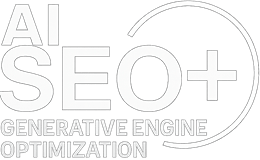Cursor
mode
SEO PLUS GEO
How to Automate SEO Tasks Using AI Tools?

Search engine optimization can be time-consuming, but AI-powered tools now make it easier to automate repetitive SEO tasks. From keyword research to technical audits, artificial intelligence streamlines processes and boosts efficiency, helping marketers focus more on strategy and less on manual work. This guide outlines key areas where AI can automate SEO tasks, reduce errors, and improve search performance at scale.
Automated Keyword Research
Keyword discovery is the foundation of SEO. AI tools can analyze search trends, intent, and SERP competition faster and more accurately than traditional methods.
Discover Intent-Based Keywords
Use platforms like Surfer SEO, SEMrush, or Ahrefs to automatically identify keyword clusters based on user intent and trending topics.
Group Keywords into Clusters
AI automatically segments keywords into topical groups for content planning, reducing the need for manual categorization and spreadsheet sorting.
Track Keyword Performance
Set up automated keyword rank tracking in tools like SERPWatcher or Wincher to monitor changes and alert you to new opportunities or drops.
AI-Powered Content Creation and Optimization
AI tools assist with writing, optimizing, and improving content for SEO performance while ensuring it matches user expectations.
Generate SEO-Friendly Drafts
Use AI writing tools like Jasper, Writesonic, or ChatGPT to produce keyword-optimized content at scale, saving hours in the drafting process.
Optimize On-Page Elements
Surfer SEO and Frase can audit and suggest real-time changes for headings, keyword placement, content length, and semantic coverage.
Automate Internal Linking
Tools like Link Whisper or Linkilo use AI to scan your site and recommend internal links based on keyword relevance and structure.
- AI SEO +GEO Services
- SEO Services
- Social Media Services
- Website Services
- Ads & Campaign Services
- Reach Us
Technical SEO Audits and Fixes
AI tools help monitor and fix technical SEO issues like crawlability, broken links, and site speed without manual inspection.
Run Regular Crawl Reports
Use Screaming Frog, ContentKing, or Sitebulb to automatically scan your website for broken links, redirects, and structural issues.
Monitor Core Web Vitals
Google Lighthouse or PageSpeed Insights API can be integrated to automatically test performance and alert you of speed or loading issues.
Fix Errors with Auto-Detection
Platforms like JetOctopus and Ryte flag SEO issues in real time, and some can auto-suggest or implement basic fixes via plugins or integrations.
Automated Reporting and Analytics
Reporting can consume hours each week. AI-based dashboards and tools simplify this by consolidating key metrics in visual, shareable formats.
Create SEO Dashboards
Use Looker Studio (formerly Data Studio) with integrations to Google Analytics, GSC, and SEMrush to build live SEO dashboards updated in real-time.
Set Up Smart Alerts
Tools like ContentKing or SE Ranking can notify you when pages are deindexed, rankings change significantly, or technical issues arise.
Track Conversions and Attribution
Use AI-powered attribution modeling in platforms like HubSpot or Google Analytics 4 to connect SEO efforts directly to lead or revenue performance.
Automating Link Building and Outreach
AI tools also streamline the link-building process by identifying targets, creating outreach emails, and tracking responses.
Find Link Prospects Automatically
Tools like Respona and BuzzStream use AI to search for relevant outreach opportunities based on your niche and content type.
Personalize Outreach with AI
Use AI to write custom email templates for each prospect, improving open and reply rates without spending hours on manual personalization.
Track Campaign Success
Integrate email and CRM tools to monitor responses, link placements, and conversions from your outreach campaigns with minimal manual effort.
Conclusion – Maximize Efficiency with AI Automation
Automating SEO tasks with AI isn’t just a time-saver — it’s a growth enabler. By delegating keyword research, content creation, auditing, reporting, and link building to smart tools, your team can focus on creativity and strategy. Embrace automation to scale faster, stay ahead of algorithm updates, and consistently outperform your competition in the search landscape.



